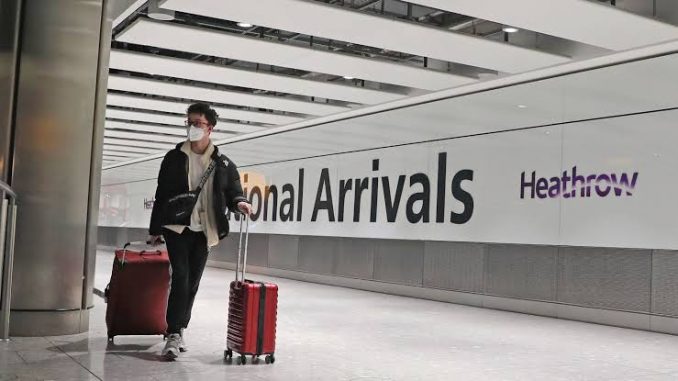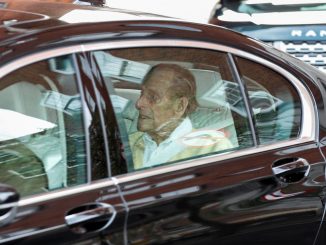
Travellers coming to the UK from June 8 will have to self-isolate for 14 days on arrival or risk being fined, prosecuted and even deported if they do not comply.
I’m travelling to the UK, what will I have to do?
Travellers will be expected to fill out a form online on gov.uk up to 48 hours in advance of travel, providing contact information and an address of where they plan to self-isolate once they arrive.
What happens if I don’t fill out the form?
Most travellers will be expected to fill out the form in advance but facilities will be provided at the border for those who have been unable to do so.
For anyone who has not filled out the form, they will be given one last opportunity as they arrive to do so.
Failure to do that will result in an offence and they could be issued with a fine, Irish News said.
ALSO READ: Trump orders US churches, mosques reopened, vows to override governors
Officials will expect airlines and other carriers to check whether people have filled out forms in advance but they will not be required to turn people away from travelling if that has not happened.
The offence will occur when someone has arrived in the UK and failed to fill out the form.
ALSO READ: From May 28 people arriving in Republic of Ireland must self-isolate for 14 days
How do I get from the airport to my accommodation?
Travellers are urged to use cars or other forms of private transport to travel from the airport when they arrive but if they must use public transport, they are advised to take the most direct route possible to their accommodation and follow guidance such as wearing face coverings.
Where should I quarantine?
UK travellers can go back to their home and self-isolate there.
Anyone who cannot provide a suitable address will be provided accommodation by the British government. The Home Office said this will be at a hotel.
Friends and family will not need to isolate with the people who have arrived, unless they have also travelled. But they should avoid contact with anyone they are staying with and minimise time spent in shared areas and use separate bathrooms if possible.
What happens if I refuse to fill out the form, or self-isolate?
You will be committing a criminal offence.
You could be fined £100 for not filling out the form, multiplying up to a £3,200 maximum amount.
Breaching the self-isolation stipulation would result in a £1,000 fine and could lead to prosecution and then the potential unlimited fine.
The amount of fine could be increased at a later date.
While officials expect the majority of the public will comply, they have warned those who deliberately flout the rules could face prosecution.
Travellers could even be deported from the UK, but authorities in England, Scotland, Wales and Northern Ireland will decide separately on immigration policy for this.
How will authorities check whether I have followed the rules?
Spot checks are set to be carried out by officials, like Border Force officers, as travellers arrive at airports and ports to make sure they have filled out the forms.
In extreme circumstances Border Force officers could refuse entry to any non-British citizen or non-British resident who has decided not to fill in the form or not take part in the self-isolation period.
The British government has also threatened to carry out spot checks around the country to make sure people are complying.
In the first instance public health authorities, using private contractors, will phone people and question them to establish whether they are self-isolating.
If there is concern they are not complying, they could be reported to the police.
There is even a risk travellers could face questions from officials as they try to leave the country again if they could not be tracked down during the self-isolation period.
Who is exempt from the rules?
Road haulage and freight workers; medical professionals travelling to help the coronavirus effort; anyone moving from within the common travel area covering the Republic of Ireland, the Channel Islands and the Isle of Man; seasonal agricultural workers who will self-isolate on the property where they are working.
A full list of exemptions to the rule will be published on gov.uk.
At this stage elite athletes will not be included but the government is continuing to review what can be done for sport events.
Officials have not ruled out a plan for “air bridges” at a later stage – where the UK agrees travel to some other countries like France would be exempt from the quarantine restriction – but this is not part of current arrangements.
What happens if I fly into Dublin and then plan to travel to the UK?
You will be expected to comply with the Republic of Ireland’s self-isolation policy before making onward travel to the rest of the UK.
How long will the measures be in place?
The rules will be reviewed every three weeks, so are expected to be in place until at least June 29.
Officials would not be drawn on whether the measure will be in place long-term.
I have a holiday booked later in the summer, what do I do?
Officials have said until such time as the Foreign Office lifts the advice against all but essential travel, holidaymakers should take that advice into account and bear in mind implications for their trip and any conditions on their holiday insurance.




